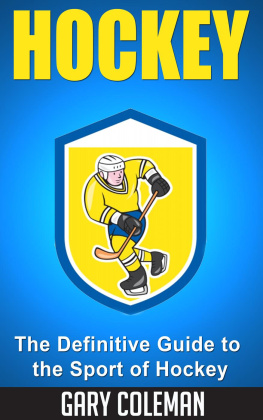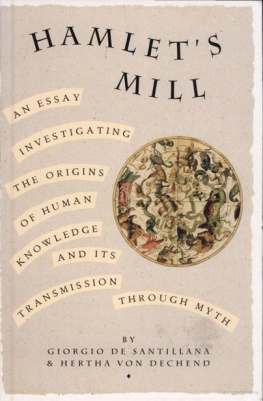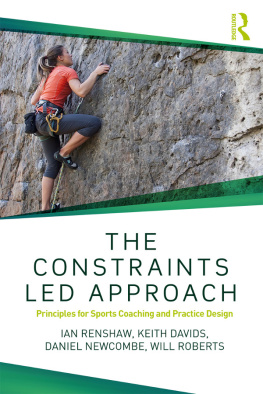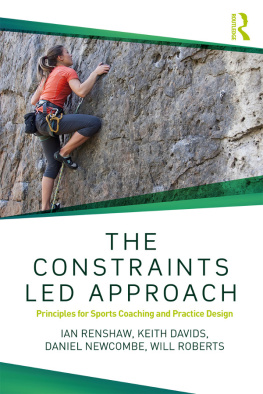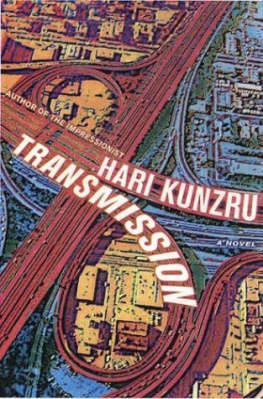
Skill Transmission, Sport and Tacit Knowledge
Teaching the skills necessary to play sport depends partly on transmitting knowledge verbally, yet non-verbal or tacit knowledge also has an important role. A coach may tell a young athlete to move more dynamically, but it is undoubtedly easier to demonstrate with the body itself how this should be done. Skills such as developing a feel for the water cannot simply be transmitted verbally; they are embodied in the tacit knowledge acquired from practice, repetition and experience.
This is the first sociological study of the transmission of skills through tacit knowledge in sport. Drawing on philosophy, sociology and theories of embodiment, it presents original research gathered from qualitative empirical studies of young athletes. It discusses the concept of tacit knowledge in relation to motor skills transmission in a variety of sports, including athletics, swimming and judo, and examines the methodological possibilities of studying tacit knowledge, as well as its challenges and limitations.
This is fascinating reading for all those with an interest in the sociology of sport, theories of embodiment, or skill acquisition and transmission.
Honorata Jakubowska works as a professor in the Institute of Sociology at Adam Mickiewicz University in Pozna, Poland. Her main research areas are the sociology of the body and embodiment, the sociology of sport, and gender studies. She is the author of two award-winning monographs in Polish and the co-editor of the Sociology of Sport Reader, and she has written 60 articles and book chapters. She is the principal investigator of two research projects financed by the Polish National Science Centre.
Routledge Focus on Sport, Culture and Society
Routledge Focus on Sport, Culture and Society showcases the latest cutting-edge research in the sociology of sport and exercise. Concise in form (20,00050,000 words) and published quickly (within three months), the books in this series represent an important channel through which authors can disseminate their research swiftly and make an impact on current debates. We welcome submissions on any topic within the socio-cultural study of sport and exercise, including but not limited to such subjects as gender, race, sexuality, disability, politics, the media, social theory, Olympic Studies and the ethics and philosophy of sport. The series aims to be theoretically informed, empirically grounded and international in reach, and will include a diversity of methodological approaches.
For a complete list of titles in this series, please visit www.routledge.com/sport/series/RFSCS
Available in This Series
1 Sport in Iceland
How Small Nations Achieve International Success
Vidar Halldorsson
2 The National Games and National Identity in China
A History
Liu Li and Fan Hong
3 Christianity and the Transformation of Physical Education and Sport in China
Huijie Zhang, Fan Hong and Fuhua Huang
4 Skill Transmission, Sport and Tacit Knowledge
A Sociological Perspective
Honorata Jakubowska
First published 2017
by Routledge
2 Park Square, Milton Park, Abingdon, Oxon OX14 4RN
and by Routledge
711 Third Avenue, New York, NY 10017
Routledge is an imprint of the Taylor and Francis Group, an informa business
2017 Honorata Jakubowska
The right of Honorata Jakubowska to be identified as author of this work has been asserted by her in accordance with sections 77 and 78 of the Copyright, Designs and Patents Act 1988.
All rights reserved. No part of this book may be reprinted or reproduced or utilised in any form or by any electronic, mechanical, or other means, now known or hereafter invented, including photocopying and recording, or in any information storage or retrieval system, without permission in writing from the publishers.
Trademark notice: Product or corporate names may be trademarks or registered trademarks, and are used only for identification and explanation without intent to infringe.
British Library Cataloguing-in-Publication Data
A catalogue record for this book is available from the British Library
Library of Congress Cataloging-in-Publication Data
A catalog record for this book has been requested
ISBN: 978-1-138-28192-9 (hbk)
ISBN: 978-1-315-26704-3 (ebk)
Typeset in Times New Roman
by Apex CoVantage, LLC
In memory of my Dad, who was always proud of me and my sister and believed that we can achieve anything
Since the 1980s, a somatic or corporeal turn (Sheets-Johnstone 2009) has been observed in the social sciences related to the criticism of the Cartesian dichotomy between the mind and the body and the perception of individuals and their knowledge as being disembodied (Turner 1984; Csordas 1990; Shilling 1993). As a consequence, in the last few decades the number of studies focused on the body and embodiment has grown significantly. These studies can be divided into four categories: (1) social theories of the body, (2) histories of the body, (3) analyses of bodily techniques and (4) studies of the embodied experience (Brown et al. 2011: 494). At the same time, and as noted by Parviainen and Aromaa (2015), representatives of the social sciences have become increasingly more interested in the body as a source of knowledge and as a tool for its acquisition. Notions such as embodied knowledge, bodily knowledge, body knowledge or somatic knowledge have been used to describe this new kind of knowledge. The term embodied knowledge is defined, among others, as knowledge incorporated not just by the material body but by a being comprising mind, body and environment (Gieser 2008: 303); it can also refer to the product of bodily enculturation (Downey 2010: 23), developed in bodily practices and acquired through imitation (Parviainen and Aromaa 2015: 2).
The body and embodied knowledge play a crucial role in the field of sport. However, paradoxically, as was pointed out by Hockey and Allen-Collinson (2007), social studies have ignored the bodys fleshy and carnal nature for a long time. The common use of Foucauldian theory, although enriching the sociological analysis of sport, has resulted in the body being considered mainly through its visual representation, as an element of discourse or as a site of disciplinary practices (Hockey and Allen-Collinson 2007; Sparkes and Smith 2012). Since the beginning of the twenty-first century, beyond the continuation of studies using this theoretical approach, one can observe a growing number of studies focused on embodiment and embodied knowledge, which remain, nevertheless, marginalised in some areas, such as physical education analysis (Brown and Payne 2009).
Sports skills acquisition has been analysed by representatives of social sciences mainly from the phenomenological perspective. Initially, the majority of publications had a theoretical nature, but in the last few years, although theoretical considerations are still common, more empirical studies have been conducted (Allen-Collinson and Hockey 2001, 2011; Brown and Payne 2009; Martnkov and Parry 2012; Standal and Engelsrud 2013). Regardless of the differences, all authors assume that skills are acquired through practice and experience, and their embodiment. Therefore, this perspective is focused rather on the incorporation of skills than on the process of teaching them. Transmission of sports skills has largely been studied in the physical sciences, such as physiology, biomechanics and psychology, but they have not gained much attention in either sociology or anthropology (Snchez Garca and Spencer 2014: 188). This omission can be explained by the fact that the social sciences have for a long time favoured propositional knowledge, that is, knowledge that can be codified, verbalised and easily transmitted (Fentress and Wickham 1992: 3). In sociology, a reflection on knowledge and its creation has been strongly developed (different forms of the sociology of knowledge), but only a small role has been attributed to embodied or tacit knowledge. As a consequence, skills understood as ways of knowing have been ignored (Moe 2004; Samudra 2008).



